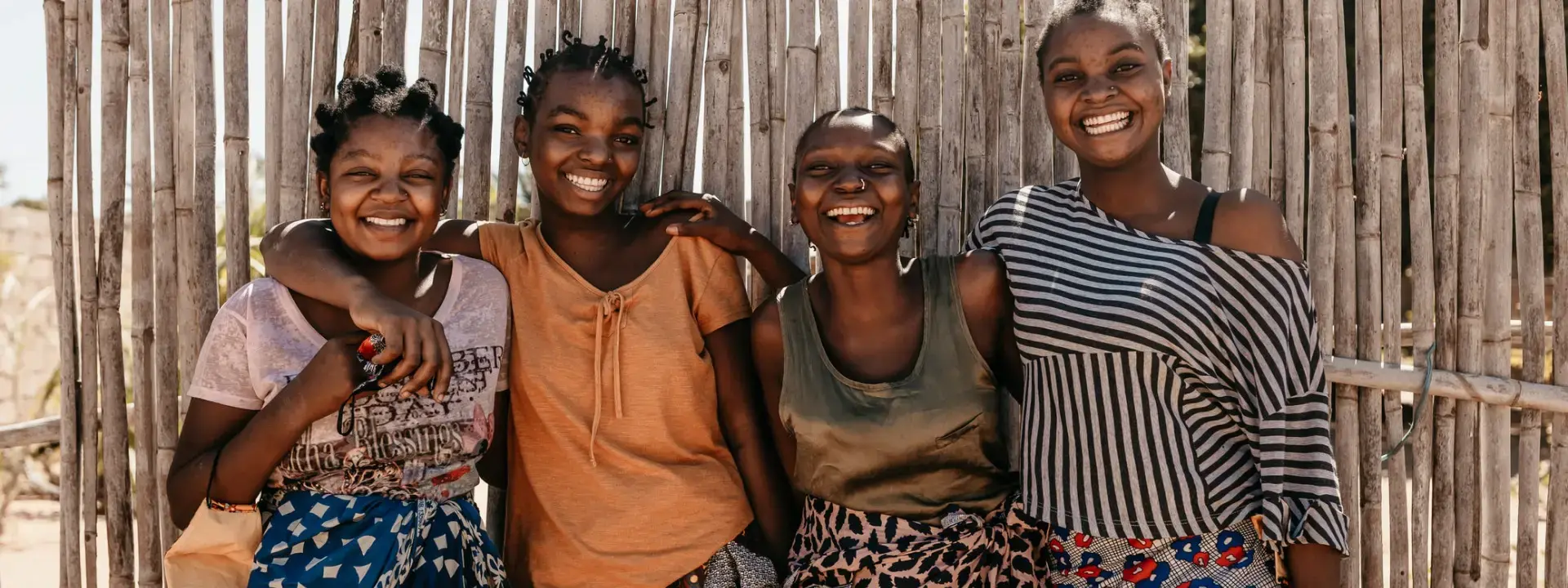As for the youth and adolescents component, UNFPA advocates for increasing the priority given to adolescents, especially girls, in national development policies and programs, particularly those related to increasing the availability of comprehensive sexuality education and sexual and reproductive health services.
In an integrated manner, UNFPA supports through this component:
The prevention of teenage pregnancy
It is estimated that 20,000 girls under the age of 18 give birth every day in developing countries. That's equivalent to 7.3 million births a year.
When a teenager becomes pregnant, her life can change radically. Her education can be interrupted and her prospects of decent employment diminish. She becomes more vulnerable to poverty and exclusion, and health complications increase. Complications from pregnancy and childbirth are the leading cause of death among girls.
Teenage pregnancy is often not the result of a deliberate choice, but the absence of options: It is a consequence of little or no access to school, information, or health care. UNFPA works to respond to these issues by focusing on protecting and safeguarding girls' rights. This includes supporting comprehensive sexuality education and sexual and reproductive health care to help girls avoid pregnancy. UNFPA also supports girls who become pregnant, so that they can return to normal life, and school and reach their full potential.
The elimination of early marriages
Early marriage is a violation of human rights. Despite various laws against this practice, it remains widespread, partly due to persistent poverty and gender inequality. In developing countries, one in three girls marry before reaching the age of 18. One in nine gets married under the age of 15.
Early marriage threatens girls' health and lives and limits their future prospects. Girls forced into early marriage are at greater risk of becoming pregnant at a younger age, increasing the risk of complications during pregnancy or childbirth.
UNFPA promotes legislation and programs aimed at ending early marriage. UNFPA also supports evidence-based investment that leads to the empowerment of girls with information, skills, and services necessary for their well-being, including education, health, and a safe transition to adulthood.
Promoting comprehensive sex education
Every young person will one day have to make important decisions about their sexual and reproductive health that could change their life. However, research shows that the majority of adolescents do not have the necessary knowledge to make these decisions responsibly, leaving them vulnerable to coercion, sexually transmitted infections, and unwanted pregnancies. Comprehensive sexuality education enables young people to make informed decisions about their sexuality and health. These programs build life skills and instill responsible behavior, and because they are based on human rights principles, they help expand human rights, gender equality, and youth empowerment.
UNFPA works with governments to implement comprehensive sexuality education, both in schools and through community-based training and outreach. UNFPA also promotes policies for investment in sexuality education programs that meet internationally accepted standards.
Promoting young people's participation in leadership
There are more young people in the world than ever before: Around 1.8 billion people are between the ages of 10 and 24. Most of them live in developing countries, often representing the largest proportion of the population. The quality of life in adolescence will determine not only the quality and course of your life in the future but also the course of the world.
However, many young people are unable to participate fully in society. Around 175 million young people in low-income countries cannot read a complete sentence. Of young people aged 15-24, around 500 million live on less than $2 a day, and more than 73 million are unemployed. For girls, the barriers to participation are even greater.
But when empowered and given equal opportunities, young people are effective vectors of change. UNFPA is committed to partnering with young people, helping them to participate in the decisions that affect them, and strengthening their capacity to promote human rights and development issues such as health, education, and employment.


